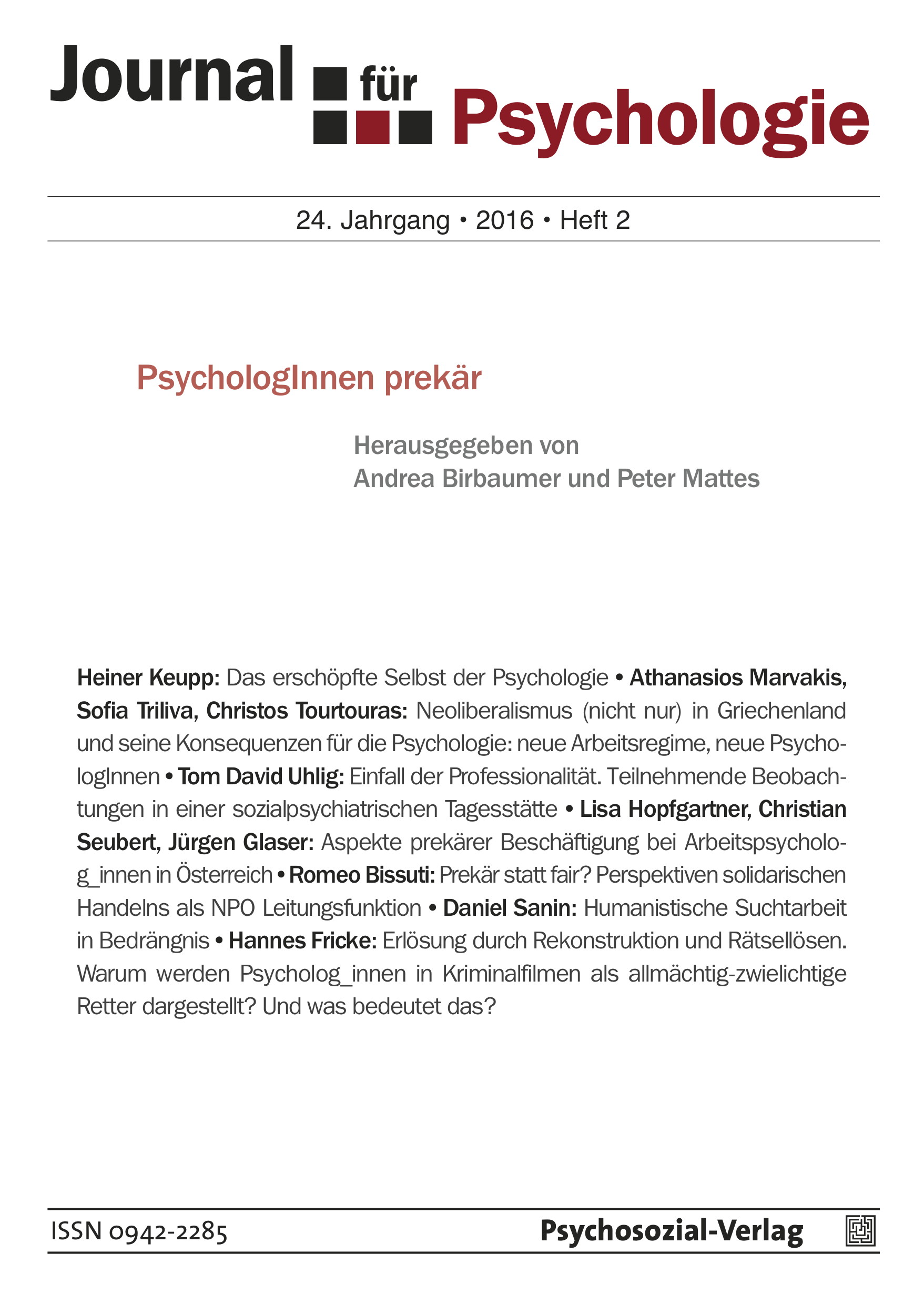Intrusion of Profession. Participatory Research in Mental Health Day Care
Keywords:
Ethnography, Social Psychiatry, Day care for the mentally ill, Aporias of Social PsychiatryAbstract
Given the transformation of the psychiatric system towards a community-based, decentralized care, it’s objective is to entangle patients in an institutional network, hereby allowing them to (re‑)built a social and everyday professional life. The claim to avoid »revolving door patients« [who/that are] stressing the institutions’ capacities – not least motivated by economic reasons – led to a diversification of supply: assisted living facilities, (ambulatory) day clinics and educational workshops became an integral part of in-patient treatments. In this article, my interest focuses on everyday life at these social-psychiatric facilities. Based on ethnographic studies, questions regarding the meaning of work and social relations within a social-psychiatric day clinic will be risen. Two aporias open up in this context and will be discussed primarily: First of all, the understanding of work within the day clinic differs from society-wide understandings attempting to split up productional and reproductional spheres. Secondly, (emotional) closeness between clients and employees caused by shared everyday experiences collides with the ideal of professionalism which happens to intrude into their social relations.Downloads
Published
2016-12-06
How to Cite
Uhlig, Tom David. 2016. “Intrusion of Profession. Participatory Research in Mental Health Day Care”. Journal für Psychologie 24 (2). https://journal-fuer-psychologie.de/article/view/411.
Issue
Section
Schwerpunkt
License
This license allows private use and unmodified distribution, but prohibits editing and commercial use (further information can be found at: https://creativecommons.org/licenses/by-nc-nd/4.0/).
The terms of the Creative Commons licence only apply to the original material. The reuse of material from other sources (marked with a reference) such as charts, illustrations, photos and text extracts may require further permission for use from the respective copyrights holder.



